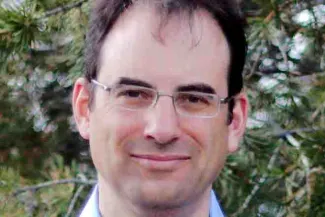
$20M from Colorado's settlement with e-cigarette maker going to youth mental health
(The Center Square) – Up to $20 million from Colorado’s $31.7 million settlement with an e-cigarette company will be used to promote youth mental health services, Democrat Attorney General Phil Weiser announced.
In 2020, Weiser filed a lawsuit against JUUL Lab, Inc., in Denver District Court. He alleged JUUL targeted youth with deceptive advertising that downplayed the concentration of nicotine and other health risks with its products. Weiser also alleged the company violated the Colorado Consumer Protection Act by suggesting use of the product was a healthy alternative to smoking tobacco cigarettes.

Phil Weiser
Last year, Weiser negotiated a $462 million multistate settlement with JUUL.
During a speech at the Colorado Education Initiative’s Hopeful Futures Conference on Tuesday, Weiser said his department began discerning earlier this year how to spend the settlement.
“After our initial conversations with stakeholders, we identified one important guiding principle – we wanted to invest the funds, as much as possible, to develop and implement preventive youth mental health strategies that would enable kids to live healthier lives and not turn to vaping in the first place,” Weiser told the conference.
Weiser’s office started allocating the settlement by offering up to $6 million to nonprofit organizations or government entities engaged in the youth mental health sector. Up to $11.4 million will be distributed in grants to school districts and other local education providers in July.
“Youth are facing a mental health and vaping crisis that is driven by a lack of meaningful connections in their lives,” Weiser said in a statement announcing the grants. “Even before the trauma and isolation of the COVID-19 epidemic, children and youth were facing increasing rates of anxiety, depression, and other mental health issues, which research shows increases the likelihood of youth vaping.”
Weiser expressed optimism in developing or enhancing partnerships between communities and schools to assist youth mental health. Applications will be accepted starting this fall and ending in January 2025.
He also announced 10 foundations will be assisting organizations in applying for the grants.
“In particular, we asked whether they might consider investing in school and community-led efforts to help develop solutions that fit individual communities’ needs, creating partnerships that can promote better youth mental health and prevent youth from turning to vaping,” Weiser said.

















